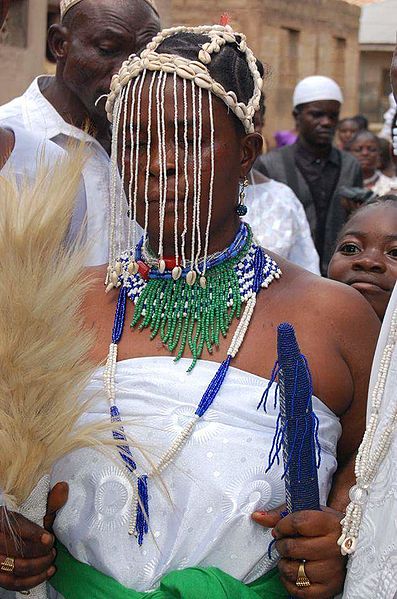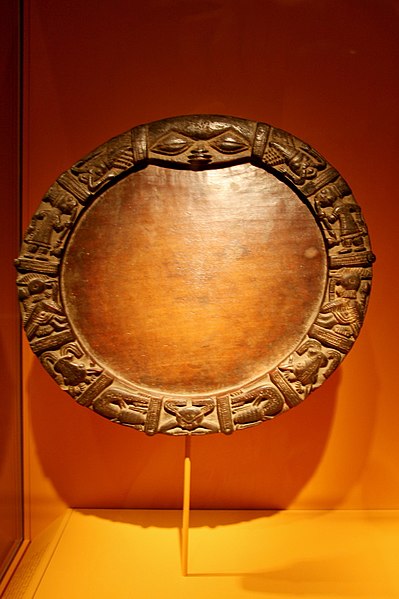The Yoruba religion, West African Orisa (Òrìṣà), or Isese (Ìṣẹ̀ṣe), comprises the traditional religious and spiritual concepts and practice of the Yoruba people. Its homeland is in present-day Southwestern Nigeria, which comprises the majority of Oyo, Ogun, Osun, Ondo, Ekiti, Kwara and Lagos States, as well as parts of Kogi state and the adjoining parts of Benin and Togo, commonly known as Yorubaland.
A Yemoja priestess in Ọ̀yọ́, Nigeria
Yoruba divination board Opon Ifá
An Egungun masquerade dance garment in the permanent collection of The Children's Museum of Indianapolis
Image: Symbol of the inner head (ibori) Africa Nigeria Yoruba people 19th 20th century leather glass beads cowrie shells Dallas Museum of Art
The Yoruba people are a West African ethnic group who mainly inhabit parts of Nigeria, Benin, and Togo. The areas of these countries primarily inhabited by the Yoruba are often collectively referred to as Yorubaland. The Yoruba constitute more than 48 million people in Africa, are over a million outside the continent, and bear further representation among members of the African diaspora. The vast majority of the Yoruba population is today within the country of Nigeria, where they make up 20.7% of the country's population according to Ethnologue estimations, making them one of the largest ethnic groups in Africa. Most Yoruba people speak the Yoruba language, which is the Niger-Congo language with the largest number of native or L1 speakers.
A group of Yoruba people at a public event
Image: Oduduwa Flag
Some Yoruba cities of the Middle Ages
The Ade-Are crown in Ile Ife








